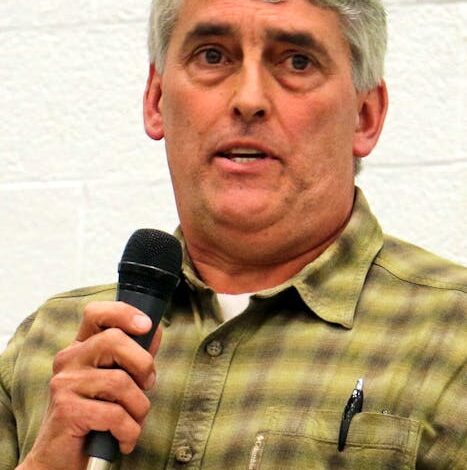West Hants, N.S., electors given options, able to vote electronically or by paper this fall

WEST HANTS – In order to ensure West Hants citizens have easy access to voting in the next municipal election, council has approved using both electronic and paper ballots.
It was a decision that merited much debate around council chambers, as councillors initially considered adopting electronic only voting, but later agreed to a hybrid approach.
Coun. Rupert Jannasch, who represents District 1: Walton – Centre Burlington, lobbied to ensure paper ballots were available for all. He noted many rural areas of the municipality still struggle with reliable internet connectivity.
“I represent a district that right now is quite large and has traditionally always had two polling stations and depending which stations you use, there’s three options: Bramber, Summerville Fire Hall and Centre Burlington Hall,” Jannasch said during the Jan. 23 discussion.
Of those, Summerville Fire Hall is the only one that has high-speed internet, he said.
“We do not have reliable internet everywhere, so it’s absolutely essential, I think, that the paper ballots are offered on all voting days, specifically for the outlying districts.”
The 2024 Nova Scotia municipal and Conseil scolaire acadien provincial (CSAP) elections are scheduled for Oct. 19.
“The only way to have any certainty in trying to have a good and fair election is to use paper ballots,” Jannasch said.
Paperless ok
Coun. Laurie Murley, who previously sat on Windsor’s town council before amalgamation and represents District 10: North Windsor, spoke to the benefits of electronic voting.
Prior to the 2020 amalgamation of Windsor and West Hants, the former town had switched to electronic voting.
“The polling stations, even in areas that are under serviced by or have difficulties with connectivity, our CAO had suggested, I believe Starlink. The municipality could ensure that there was connection there for them,” said Murley, speaking on the benefits of a paperless approach.
“Which means that the only difference is they’d be still going behind the barrier to place their vote but instead (of paper) there would be an iPad or whatever type of screen that we would have there for them to work their way through (the voting process),” she said.
“I don’t want us to forget as well that electronic includes telephone, and I think most people have telephones.”

Murley said she thinks the municipality is spending a lot of money to ensure both options are available at the advance polling days as well as on election day.
“I can’t speak for those of you that live in areas where access to the internet and/or where the dual method may be more beneficial, but I just think that we’re doubling up here,” said Coun. Jim Ivey.
Ivey, who represents District 11: South Windsor and who also previously sat on Windsor’s council, checked to see if some districts could use electronic voting only and paper ballots for the more rural areas. He then said that may cause more confusion.
He noted offering both options was “a bit of overkill in my mind.”

Engaging voters
Coun. Scott McLean, who represents the rural polling District 2: Cogmagun – Avondale, wanted to ensure paper ballots were available, noting he’s been told many times by senior citizens that they “will not vote unless they can vote with a piece of paper.”
Council first began contemplating how it would handle the next election last fall.
Mayor Abraham Zebian said he understood both sides of the issue.
“I thought it was kind of cool to be able to do it electronically, or by telephone, behind the booth and still be able to touch the screen. But there are valid points on the connectivity and the location of the polling stations,” said Zebian.
As there is a push to go paperless, Zebian said it will be interesting to see what the provincial government opts to do in the next election.
The motion to approve the hybrid voting system passed 7-5.
Intelivote received the contract for the alternative election voting option for $41,075 plus applicable taxes.

Hiring issues
On or before March 15, council must appoint the returning officer to meet the Nova Scotia Municipal Elections Act deadlines.
It was noted in a report to council that it may be difficult to hire a returning officer due to the hybrid voting system and the extra work that entails. The report notes that former returning officers were approached to gauge interest and each one responded that they were not interested in working the hybrid system.
“In having conversations with other municipal units, (the West Hants Regional Municipality) anticipates it may be difficult to find (a returning officer) for a hybrid election and if successful, it will come at a greater cost,” the report noted.
“In addition to this challenge, it is anticipated there will be a lack of available election staff for all 2024 elections. Municipalities are expected to have trouble finding workers and pay rates are expected to be significantly higher than in previous years to meet current demands.”
The report to council estimates election costs will be at least 20 to 25 per cent higher than in 2020, which cost $56,861.92. That election was paper-only.
Aside from regular polling stations throughout the district, there will also be mobile polls available for licensed nursing homes, hospitals, and homes for the aged or the treatment of chronic diseases. These polls would only be open on election day, from 8 a.m. to 7 p.m.





